-
Are Artificial Intelligence and Circular Economy Activities ‘Run‐of‐the‐Mill’ in Integrated Reporting? Bus. Strategy Environ. (IF 12.5) Pub Date : 2025-06-04
Sarfraz Nazir, Federica Doni, Alessandro Capocchi, Amna SarfrazThis study aims to investigate the nexus of artificial intelligence (AI) and circular economy (CE) activities in integrated reporting (IR) practices. The study used data on the top 100 most sustainable corporations provided by Corporate Knights, which analyses roughly 7000 public firms with annual revenue of at least US$ $1 billion and the Dow Jones Sustainability Index (DJSI). Our research methodology
-
Correction to Article “What Is a Sustainable Company?” Bus. Strategy Environ. (IF 12.5) Pub Date : 2025-06-03
-
Leading the Way Towards Greener Business Models in the Wine Industry Bus. Strategy Environ. (IF 12.5) Pub Date : 2025-06-02
Eduardo Sánchez‐García, Javier Martínez‐Falcó, Bartolomé Marco‐Lajara, Laura AbrahamThis study connects ethical leadership and green management to unlock the knowledge behind sustainability success, investigating the impact of environmental management and ethical leadership on the green performance of firms, both directly and indirectly, through the mediating role of green knowledge sharing, providing a framework for understanding how these factors interplay to drive sustainability
-
The Impact of ESG‐Related, Financial, and Geopolitical Uncertainties on the Renewable Energy Transition in the United States Bus. Strategy Environ. (IF 12.5) Pub Date : 2025-06-02
Oktay Özkan, Mustafa Naimoğlu, Mehmet Metin DamThe transition to renewable energy sources is imperative for sustainable economic growth (GDP) and environmental resilience. The present study examines the impact of economic policy uncertainty (EPU), geopolitical risk (GPR), financial market uncertainty (FMU), GDP, trade openness (TRA), and environmental, social, and governance‐related uncertainty (ESGU) on renewable energy transition (RET) in the
-
Sustainable Finance Disclosure Versus Performance: A Clustering Approach Bus. Strategy Environ. (IF 12.5) Pub Date : 2025-06-02
Veronica Distefano, Vincenzo Gentile, Paolo Antonio Cucurachi, Sandra De IacoThe Sustainable Finance Disclosure Regulation (SFDR) imposes on investment companies the publication of sustainability related profiles of the portfolio creation process. This obligation seeks to enhance the information provided to customers on financial products with regard to the Environmental, Social and Governance (ESG) criteria. In order to understand to which extent this information is relevant
-
EXPRESS: New Tools, New Rules: A Practical Guide to Effective and Responsible GenAI Use for Surveys and Experiments Research Journal of Marketing (IF 11.5) Pub Date : 2025-06-02
Simon J. Blanchard, Nofar Duani, Aaron M. Garvey, Oded Netzer, Travis Tae OhGenerative Artificial Intelligence (GenAI) tools based on Large Language Models (LLMs) are quickly reshaping how researchers conduct surveys and experiments. From reviewing the literature and designing instruments, to administering studies, coding data, and interpreting results, these tools offer substantial opportunities to improve research productivity and advance methodology. Yet with this potential
-
Inventory Knowledge, Industry 5.0 and Performances: Review and Future Research Agenda Bus. Strategy Environ. (IF 12.5) Pub Date : 2025-06-01
Rashmi Ranjan Panigrahi, Avinash K. Shrivastava, Bishal Dey Sarkar, Mathiyazhagan KaliyanInventory management (IM) is emerging as a focal point in Industry 5.0 (I5.0), especially within the manufacturing setups, because of its alignment with the environmental and sustainability goals of the firm's operation. This research explores the disparity between theoretical views and practical applications of IM, highlighting the significance of domain‐specific knowledge and its impact on the I5
-
The cousin marriage tradition, colonial shocks, and the performance of informal firms in sub‐Saharan Africa Strateg. Entrep. J. (IF 5.4) Pub Date : 2025-06-01
Saul Estrin, Tomasz Mickiewicz, Peng ZhangResearch SummaryThe paper explores how the deep historical roots of informal institutions influence current informal businesses. It proposes that both pre‐colonial institutions—the tradition of cousin marriage—and the subsequent shocks of colonization still impact the performance of informal firms. We theorize on how the effects of historical family systems are moderated by the traumatic and spatially
-
Modeling the Role of Big Data Analytics Capabilities in Impacting Corporate Environmental Performance: A Serial Mediation Analysis Bus. Strategy Environ. (IF 12.5) Pub Date : 2025-05-31
Leul Girma Haylemariam, Rana Muhammad Umar, Stephen OduroBig data analytical capabilities (BDAC) have emerged as a significant strategic tool for enhancing environmental performance in today's ever‐growing green and digital economy. However, the serial process through which BDAC influences environmental performance remains understudied, particularly in multinational corporations (MNCs). Drawing on the dynamic capability view (DCV) and the natural resource‐based
-
Living healthily to 120: Implications for entrepreneurship J. Bus. Venturing (IF 7.7) Pub Date : 2025-05-31
Marco van GelderenResearch on how to slow, halt, and reverse aging processes is making progress. Pharmaceutical, big-tech, and venture capital companies and their owners are making considerable investments in potential (epi)genetic, molecular, cellular, and organ-based interventions and therapies. This essay considers implications for entrepreneurship in the case that such interventions would eventually result in a
-
Deeper knowledge of entrepreneurs in decision-making. Innovating through neuroentrepreneurship J. Innov. Knowl. (IF 15.6) Pub Date : 2025-05-30
Juan Camilo Serna Zuluaga, David Juárez-Varón, Ana Mengual-Recuerda, Vincenzo CorvelloThe objective of this study is to obtain deeper knowledge during the decision-making process in the business field, establishing the emotional and cognitive differences between novice and experienced entrepreneurs. This work looks at how emotional responses vary in key situations, such as personnel hiring, salary remuneration, and the definition of financial and distribution strategies, through the
-
Unpacking the Renewable Pull Effect: Conditions for Green Industrial Relocation Bus. Strategy Environ. (IF 12.5) Pub Date : 2025-05-30
Sven Colen, Alwine MohnenThe renewable pull effect theoretically leads to the relocation of green production facilities within energy‐intensive industries to regions rich in renewable energy resources. This study employs a qualitative research design, integrating the analytic hierarchy process method, by interviewing top managers and experts from globally leading steel and chemical corporations, predominantly based in Europe
-
EXPRESS: How Can a Firm Suppress Shareholders’ Punitive Reaction to Its Disengagement from a Geopolitically Uncertain Market? Journal of Marketing (IF 11.5) Pub Date : 2025-05-30
Vivek Astvansh, Kamran Eshghi, Hesam Shahriari, Wei ShiIncreased geopolitical tensions have raised firms’ uncertainty about some geographical markets; in response, firms may announce their disengagement from these markets. Such announcements may lower the firm’s future revenue and thus elicit negative reactions from shareholders. The authors theorize managers can frame announcements to impress shareholders and suppress their punitive reactions. Specifically
-
EXPRESS: Closing the Knowledge Gap: Understanding and Reducing the Environmental Impact of Food Choices Journal of Marketing (IF 11.5) Pub Date : 2025-05-30
Bart J. Bronnenberg, Trang Bùi, Barbara Deleersnyder, Lesley Haerkens, George Knox, Arjen van Lin, Max J. Pachali, Anna Paley, Robert W. Smith, Samuel StäblerThe global food system has a large impact on the environment. By converting household grocery purchases into environmental cost factors like greenhouse gas (GHG) emissions and land use, this study examines the sustainability of food purchases over a 10-year period using household panel data in two pro-sustainability markets (Germany and the Netherlands). The environmental intensity of households’ grocery
-
Bold, broad, rigorous, and…relevant? Designing entrepreneurship research for translation J. Bus. Venturing (IF 7.7) Pub Date : 2025-05-30
Theodore L. Waldron, Jeffery S. McMullen, Scott L. Newbert, G. Tyge Payne, Jeffrey G. YorkEntrepreneurship research should strive for relevance—the potential to influence the thoughts, decisions, and actions of those who practice entrepreneurship. Despite the Journal of Business Venturing’s (JBV) efforts to foster relevance, submissions often fail to demonstrate their potential for practical usefulness. Addressing this problem involves making practical relevance a guiding principle of research
-
Cost‐effectively leveraging digital capital to develop means for effectual decision‐making Strateg. Entrep. J. (IF 5.4) Pub Date : 2025-05-30
Hyunkyu Park, Yining Luo, Yi YangResearch SummaryExtant studies suggest that a particular set of means, once in place, prompt entrepreneurs to enact effectual decision‐making. However, little is known about how such effectual means are developed, particularly when entrepreneurs' primary means are digital capital rather than pre‐existing effectual means. To address this gap, our qualitative research examines an emerging phenomenon
-
Integrating multimodal data and machine learning for entrepreneurship research Strateg. Entrep. J. (IF 5.4) Pub Date : 2025-05-30
Yash Raj Shrestha, Vivianna Fang HeResearch SummaryExtant research in neuroscience suggests that human perception is multimodal in nature—we model the world integrating diverse data sources such as sound, images, taste, and smell. Working in a dynamic environment, entrepreneurs are expected to draw on multimodal inputs in their decision making. However, extant research in entrepreneurship has largely focused on how entrepreneurs or
-
Multi‐Sided Platforms as Enablers of Circular Supply Chains: A Case Study From the Norwegian Shipbuilding Industry Bus. Strategy Environ. (IF 12.5) Pub Date : 2025-05-29
Jørgen Veisdal, Heidi Dreyer, Arild AspelundIn maritime industries, transitioning to circular supply chains for the sourcing of components and materials is considered an important step in the direction of more environmentally sustainable means of production. Multi‐sided platforms (MSPs) have previously been proposed as a promising technology for enabling industries to coordinate toward new paradigms such as the circular economy (CE). This novel
-
Navigating Multilevel Environmental Pressures and Harnessing Digital Transparency as a Catalyst for Sustainable Innovation: Pathways to Enhanced Environmental Performance Bus. Strategy Environ. (IF 12.5) Pub Date : 2025-05-29
Li Zheng, Varun Chotia, Nourah O. Alshaghdali, Laura Broccardo, Lu WangThis study examines how firms leverage sustainable innovation propensity and digital sustainability transparency as strategic resources to navigate multilevel environmental pressures and achieve environmental and innovation performance. The central theory guiding this research is the resource‐based view, which posits that firms gain competitive advantage through the effective management of valuable
-
Waves and rips: Abalone, entrepreneurial variants, and community functioning J. Bus. Venturing (IF 7.7) Pub Date : 2025-05-29
Sarah R. Chase, Dean A. ShepherdWhile the entrepreneurship literature has explored distinct types of opportunities, such as sustainable, unsustainable, social, and commercial, the diverse and integrated processes through which each type of opportunity is exploited remain poorly understood. Indeed, prior research tends to conceptualize opportunity exploitation as uniform and binary, such as sustainable or unsustainable, rather than
-
Assessing entrepreneurial ecosystems' influence on green technology innovation: A cross-country analysis J. Innov. Knowl. (IF 15.6) Pub Date : 2025-05-28
Mohsen KhezriThis study explores the impacts of 11 diverse entrepreneurship indicators on green technology innovation (GTI) to determine the optimal environmental regulatory framework that fosters green entrepreneurship. Additionally, the study investigates the impacts of environmental regulations on GTI by utilizing nonlinear panel smooth threshold regression (PSTR) models on data collected from 18 countries from
-
Digital Product Passports as Information Providers for Consumers—The Case of Digital Battery Passports Bus. Strategy Environ. (IF 12.5) Pub Date : 2025-05-28
Martin Popowicz, Antonia Pohlmann, Josef‐Peter Schöggl, Rupert J. BaumgartnerSustainable consumption is crucial to transitioning toward a more sustainable society. Various tools, including information provision tools such as ecolabels, aim to promote sustainable consumption but are often criticized for failing to adequately inform consumers. This study examines digital product passports (DPPs), an emerging policy tool, as a means of enhancing consumer communication. Given the
-
Leveraging open innovation for e-commerce success: The contingent role of accounting information systems and artificial intelligence J. Innov. Knowl. (IF 15.6) Pub Date : 2025-05-27
Amar Johri, Raj Kumar Singh, Bijay Prasad Kushwaha, Hamad Alhumoudi, Abdullah Alakkas, Maysoon KhojaThis study delves into the impact of open innovation on the performance of e-commerce, with moderation by accounting information systems (AIS) and artificial intelligence (AI). Data were gathered through a survey with 29 scale items adapted from established measures to assess seven crucial variables of open innovation and e-commerce performance. The participants, 427 senior-level employees from various
-
Assessing Critical Success Factors for Industry 4.0‐Enabled Circular Startups: A Fuzzy AHP–DEMATEL Approach Bus. Strategy Environ. (IF 12.5) Pub Date : 2025-05-27
Sagnika Datta, Krishna Chandra Balodi, Suresh Kumar JakharThe circular economy (CE), in conjunction with Industry 4.0 (I4.0), is an emerging trend discussed in academia and industry. Research suggests that I4.0 supports the CE, and circular startups (CSUs) are key players in advancing CE. However, there is a gap in empirical studies on I4.0‐enabled CSUs (CSU4.0). This research employs a multicriteria decision‐making methodology, incorporating the fuzzy analytic
-
Exploring the Effects of Sustainable Innovation on a Textile Company's Business Network Bus. Strategy Environ. (IF 12.5) Pub Date : 2025-05-27
Matteo Dominidiato, Simone Guercini, Annalisa TunisiniThe study examines how a textile company's business network is affected by sustainable innovation. It investigates the impact of sustainable practices on network dynamics and a company's business network with a particular focus on the textile sector in the fashion industry. Sustainable innovation has a significant impact outside of internal operations and is motivated by the desire to increase operational
-
International Cooperation and Corporate Strategies: Accelerating Corporate Energy Transitions in Emerging Economies Bus. Strategy Environ. (IF 12.5) Pub Date : 2025-05-27
Emmanuel A. Morrison, Xihui Haviour Chen, Danson Kimani, Douglas A. AduDriven by the growing focus on decarbonisation and energy economic dynamics in emerging economies, this study examines the interplay between executive compensation (EC), sustainability‐based compensation (SBC), board sustainability committee initiative (BSCI), corporate energy transition initiatives (CETIs), corporate carbon emissions (CCEs) and firm performance (FP) using a multi‐theoretical framework
-
How Companies With Industrial Symbiosis Business Models Can Contribute to the Mainstreaming of Industrial Symbiosis Bus. Strategy Environ. (IF 12.5) Pub Date : 2025-05-27
Kristina Nyström, Murat MirataCompanies incorporating industrial symbiosis in their business models (ISBMs) play important roles in the realization of IS solutions. This paper explores how this group can also influence contextual conditions for the wider adoption of these solutions, thus contributing to their mainstreaming. Through a multiple case study of development processes connected to a diverse set of ISBM companies, three
-
Do Corporate Governance Mechanisms Help to Reduce Carbon Emissions? Some Empirical Evidence on Listed Companies in France, Germany, the United Kingdom, and Japan Bus. Strategy Environ. (IF 12.5) Pub Date : 2025-05-26
Cécile Cezanne, Gaye Del Lo, Yves Kassi, Sandra RigotClimate change is one of the greatest challenges facing humanity today. In this paper, we analyze the role of firms in mitigating climate change through their model of corporate governance. We examine the impact of key organizational control and incentive mechanisms on firms' carbon emission intensity. Using a panel of 305 listed firms in France, Germany, the United Kingdom, and Japan over the period
-
Owner-management, board governance and responses to performance feedback in private firms J. Bus. Venturing (IF 7.7) Pub Date : 2025-05-26
Jeroen Neckebrouck, William S. SchulzeDespite the ubiquity of private firms, questions concerning the influence of owner-management and board governance on strategic decision-making in private firms have received limited attention. To explore these questions, we draw on the performance feedback literature and use longitudinal data from 27,704 U.K. and 7272 Belgian private firms to examine strategic investment in private firms. We find
-
Remodelling Fashion: Climate Governance and the Sustainable Energy Transition Bus. Strategy Environ. (IF 12.5) Pub Date : 2025-05-24
Isabel‐María García‐Sánchez, Rizwan Ali, Saudi‐Yulieth Enciso‐Alfaro, Ramiz ur RehmanThe ecological footprint of multinational corporations (MNCs) is a global issue that demands immediate attention. In particular, the impact of the fashion industry has garnered significant concern, as it alone is responsible for approximately 10% of global carbon emissions. Consequently, the adoption of responsible environmental initiatives such as the transition to sustainable energy could play a
-
Climate on the Agenda: How Board Composition Drives Climate Change Disclosure in European Banks Bus. Strategy Environ. (IF 12.5) Pub Date : 2025-05-24
Nicola Raimo, Ilenia Fraccalvieri, Filippo Vitolla, Candida BussoliClimate change demands immediate and coordinated action from individuals, governments, and companies. Companies, in particular, play a pivotal role in mitigating climate risks and reducing environmental impacts by adopting sustainable practices that extend beyond regulatory compliance. This responsibility is not confined to high‐emission industries; service sectors, including financial institutions
-
From Challenges to Impact: Drivers, Barriers, and Shared Resources in Sustainability‐Oriented Corporate‐Startup Alliances Bus. Strategy Environ. (IF 12.5) Pub Date : 2025-05-23
Tomas Santa‐Maria, Nicole Dougnac, Leandro J. Llorente‐González, Martin GeissdoerferDespite the growing importance of corporate sustainability, research on strategic alliances between corporations and sustainable startups remains limited. While corporations struggle with implementing radical sustainability‐oriented innovation, sustainable startups face challenges in scaling and validation. Given their complementary resources, partnerships between these entities offer significant potential
-
Navigating Sustainability Practice in Publicly Listed Family Firms: The U‐Shaped Impact of Family Ownership and the Moderating Role of MBA Leadership Bus. Strategy Environ. (IF 12.5) Pub Date : 2025-05-23
Yoonjeoung Heo, Anna PakThis study examines how family ownership influences sustainability practices in publicly listed firms by focusing on tensions between two socioemotional wealth (SEW) priorities: control preservation and reputation enhancement. Although family ownership is associated with distinctive sustainability behaviors, findings remain mixed due to conflicting SEW motivations. Using data from publicly listed firms
-
Knowledge management and SMEs’ digital transformation: A systematic literature review and future research agenda J. Innov. Knowl. (IF 15.6) Pub Date : 2025-05-22
Shahid Hafeez, Khuram Shahzad, Petri Helo, Muhammad Faraz MubarakThis study aims to identify and explain different collaborative approaches, delineate external actors' roles, and examine the interplay between knowledge exploration and exploitation processes for digital transformation. We conducted a search of academic papers using research terms such as “Digital*, Digital transfor*, industry 4.0 (I4.0), industry 5.0, knowledge exploration, knowledge acquisition
-
Female Directors, Family Firms, Climate Talk and Climate Walk: European Evidence Bus. Strategy Environ. (IF 12.5) Pub Date : 2025-05-22
Niklas Bergmann, Patrick Velte, Ignacio RequejoGrowing attention is attributed to symbolic and substantive climate efforts, labelled as climate talk and walk. Focusing on the European capital market, we study the relationship between board gender diversity, family ownership and different levels of corporate climate activities along the continuum from climate talk to climate walk. Using emission reduction target data from the Carbon Disclosure Project
-
EXPRESS: Consequences of Bottle Bills: How Bottle Deposit Return Schemes Affect Retail Prices and Lead Consumers to Larger Package Sizes Journal of Marketing (IF 11.5) Pub Date : 2025-05-22
Kristopher O. Keller, Jonne Y. GuytPlastic waste has doubled in the past two decades, and less than 10% of plastic waste is recycled. “Bottle bills” are legislation to combat plastic waste by increasing recycling rates, by adding a per-bottle deposit that gets refunded to consumers who return empty containers. Industry experts are divided over the retail sales and price implications of such measures. To clarify the implications of such
-
Micro‐transitions and work identity: The case of academic entrepreneurs Strateg. Entrep. J. (IF 5.4) Pub Date : 2025-05-22
Marouane Bousfiha, Henrik BerglundResearch SummaryThis paper examines how academic entrepreneurs—scientists who found research‐based startups while remaining in academia—construct and sustain their professional identities amid frequent transitions between academic and entrepreneurial roles. Drawing on 27 interviews with Swedish academic entrepreneurs, we show that hybrid identities are not simply the result of reconciling abstract
-
Translation of equality, diversity, and inclusion ideas in a foreign subsidiary J. Int. Bus. Stud. (IF 8.6) Pub Date : 2025-05-21
Cristina Leone, Arabella Mocciaro Li Destri, Pasquale Massimo PiconeDrawing on a sociological approach, this paper examines how the subsidiaries of multinational companies (MNCs) translate equality, diversity, and inclusion (EDI) ideas from their headquarters (HQs). International business (IB) studies emphasize the context-sensitive and socially constructed nature of EDI. Through a single case study of an Italian subsidiary translating EDI ideas from its U.S. HQs,
-
A meta-analysis of the effectiveness of social media influencers: Mechanisms and moderation J. Acad. Mark. Sci. (IF 9.5) Pub Date : 2025-05-21
Mojtaba Moji Barari, Martin Eisend, Shailendra Pratap JainThe use of social media influencers as persuasive marketing agents has become ubiquitous. However, a comprehensive understanding of their effectiveness, mechanisms, and moderation is still lacking. To address this gap, we conducted a meta-analysis of 71 papers, yielding 135 experimental studies and 571 effect sizes related to the impact of social media influencers compared to other forms of brand endorsements
-
The Influence of Economics Education in School on Future Entrepreneurial Behavior Entrepreneurship Theory and Practice (IF 7.8) Pub Date : 2025-05-21
Andranik Tumasjan, Lukas Mergele, Ines Rueter, Larissa Zierow, Ismail IsmailWhereas much research has focused on the predictors of entrepreneurial behavior during adulthood, we know little about how preadulthood experiences influence entrepreneurial behavior later in life. Grounded in imprinting theory, this study examines whether introducing economics classes in school enhances students’ entrepreneurial behavior in adulthood. Using a difference-in-differences approach exploiting
-
Scalable machine learning framework for predicting critical links in urban networks J. Innov. Knowl. (IF 15.6) Pub Date : 2025-05-20
Nourhan Bachir, Chamseddine Zaki, Hassan Harb, Roland BillenEfficient identification of critical links in urban road networks is essential for optimizing traffic management, infrastructure planning, and resource allocation. Existing methods, such as simulation-based approaches, are computationally expensive and often impractical for large-scale networks. This study proposes a scalable machine learning framework capable of training on a subset of network links
-
Dynamic Knowledge Management Capabilities for Successful Product Eco‐Innovation Bus. Strategy Environ. (IF 12.5) Pub Date : 2025-05-20
José Rabal Conesa, Daniel Jiménez Jiménez, Micaela Martínez CostaThis study explores how dynamic capabilities—specifically knowledge management, knowledge capacity, agility, information capabilities and resilience—support successful eco‐innovation in product development. Grounded on the dynamic capability framework, the research introduces the IKARG model (Information, Knowledge Management, Agility, Resilience, and Green Innovation), analysing its application in
-
How Do Institutional Pressures Reshape the Association Between Corporate Sustainability Disclosure and Firm Value in Emerging Economies? The Moderating Role of the Audit Committee Function Bus. Strategy Environ. (IF 12.5) Pub Date : 2025-05-20
Mohannad Issa Elmanaseer, Ali Meftah GergedThis study examines the influence of normative (e.g., voluntary sustainability reporting guidelines) and coercive (e.g., mandatory corporate governance [CG] requirements) pressures on the relationship between corporate sustainability disclosure (CSD) and financial performance (FP), focusing on the moderating role of audit committee characteristics. Using 1863 firm‐year observations from 207 companies
-
Emancipatory entrepreneurship in postcolonial economies: The clash of institutional systems in the Kejetia marketplace J. Bus. Venturing (IF 7.7) Pub Date : 2025-05-20
Arielle Newman, Alexander Lewis, Ryan ColesThis study explores emancipatory entrepreneurship in postcolonial economies where Western bureaucratic and Indigenous traditional systems simultaneously influence entrepreneurial activities. In Kumasi Ghana, the reconstruction of the Kejetia Marketplace was funded by foreign investment and required formal business registration, effectively excluding informal entrepreneurs. Using process tracing, we
-
Unlocking the power of AI in CRM: A comprehensive multidimensional exploration J. Innov. Knowl. (IF 15.6) Pub Date : 2025-05-19
Khadija Khamis Alnofeli, Shahriar Akter, Venkata YanamandramArtificial intelligence (AI) is revolutionising customer relationship management (CRM) across various sectors, fundamentally altering strategic business operations. This study examines the capabilities of AI-powered CRM systems, drawing on empirical evidence arising from thematic analyses of 64 scholarly articles and insights gained from 24 in-depth interviews with CRM experts. The research identifies
-
Evaluating the Influence of Board Characteristics on Environmental Decoupling: Evidence From Europe Bus. Strategy Environ. (IF 12.5) Pub Date : 2025-05-19
Sabrina Pisano, Luigi Lepore, Raffaela Nastari, Bakr Al‐GamrhThis study investigates the relationship between corporate governance characteristics and environmental decoupling, that is, the misalignment between environmental disclosure and environmental performance. We analyze a sample of 728 European companies (3061 firm‐year observations) belonging to 18 industries and 20 different countries from 2017 to 2023. The results show that companies tend not to disclose
-
Life Cycle Sustainability Assessment Integrated Data‐Driven Methodological Framework for Sustainable Supplier Selection Bus. Strategy Environ. (IF 12.5) Pub Date : 2025-05-19
Ankit Kumrawat, Seema UnnikrishnanWith the growing importance of sustainable supply chain management, businesses are actively looking for sustainable suppliers that consider all sustainability dimensions. This study aims to demonstrate a data‐driven methodological framework for sustainable supplier selection (SSS). The research proposes a three‐stage, data‐driven approach for SSS. The first stage involves using the life cycle sustainability
-
A Bounded Rationality Model for Sustainable Supplier Selection for New Products: A Whole Product Life Cycle Perspective Bus. Strategy Environ. (IF 12.5) Pub Date : 2025-05-19
Chong Wu, Weiling Hou, David BarnesWhen developing new products, companies must select the most appropriate sustainable suppliers at the early stages of product development to achieve long‐term sustainability and reduce the high risk of failure inherent in the new product development. Moreover, new products have different market characteristics at each stage of the PLC, which leads to different psychological behaviours among decision‐makers
-
Breaking barriers in advertising: Innovative cross-media measurement with audio-matching J. Innov. Knowl. (IF 15.6) Pub Date : 2025-05-16
Silvia Sanz-Blas, Victor Ballester-Riera, Daniela BuzovaThe changes that are taking place in consumers’ media consumption in and outside the home pose a challenge as to how to accurately assess the impact of cross-media advertising campaigns. An innovative measurement solution based on audio-matching technology, and taking a cross-media, single-source approach, provided a holistic view of the effectiveness of advertising campaigns across different media
-
Transitioning to Circular Economy in Agriculture Sector: An Extended Institutional Theory and Stakeholder Perspective Bus. Strategy Environ. (IF 12.5) Pub Date : 2025-05-16
Deepak Kumar Sahu, Divya ChoudharyThe deteriorating impact of traditional linear model on agriculture productivity and ecology has drawn a serious emphasis on the espousal of circular economy (CE) practices in the agriculture sector. Accordingly, an increasing number of startups operating on circular principles are emerging in the agriculture sector to create value from the agri‐waste. In this research, we aim to investigate the challenges
-
ESG Performance and Dividend Payout: The Moderating Role of ESG Controversies and Legal Systems Bus. Strategy Environ. (IF 12.5) Pub Date : 2025-05-16
Satish Kumar, Avinash GhalkeThis study delves into the relationship between ESG performance and dividend payout in G20 countries. Based on a comprehensive sample of 2344 firms from 2011 to 2022, our findings reveal a positive correlation between ESG performance and dividend payout. Notably, this positive impact is significantly pronounced in common‐law countries, where investor protection is robust. Moreover, companies with high
-
When hype collides with morality: How entrepreneurial framing affects the behavior and legitimacy of hyped ventures J. Bus. Venturing (IF 7.7) Pub Date : 2025-05-16
Christian E. Hampel, Elena DalpiazHyped ventures attract valuable resources by framing their goals in line with the hype. However, in doing so they risk adopting problematic conduct that undermines their moral legitimacy and requires repair. To explore the overlooked internal dynamics of this phenomenon, we conduct a longitudinal case study of a hyped fintech venture that lost and repaired its legitimacy. Our paper uncovers that how
-
What entrepreneurial decisions enable the breeding of digital platform unicorns? Strateg. Entrep. J. (IF 5.4) Pub Date : 2025-05-16
Sea Matilda Bez, Isabel Narbon, Asta Pundziene, Rima Sermontyte‐baniuleResearch SummaryDigital platforms have revolutionized business sectors; however, despite their significant success, platform unicorns remain rare. While extensive research exists on digital platform growth, it is uncertain what entrepreneurial decisions achieve unicorn status. We address the research question of what combination of complementary entrepreneurial decisions increases and decreases the
-
Big data or big brother: When is recontacting the digital customer OK? J. Acad. Mark. Sci. (IF 9.5) Pub Date : 2025-05-13
Yin Bai, Yan Wang, Xingyao RenDespite the importance of determining when it is appropriate to recontact digital customers, considering both retargeting effectiveness and privacy concerns, this issue has been underexplored in previous research. Unlike previous retargeting studies that infer decision stages from fragmented actions, we uncover consumers’ purchase concerns from a series of actions in their purchase journey. A randomized
-
Chief marketing officer role design J. Acad. Mark. Sci. (IF 9.5) Pub Date : 2025-05-14
Kimberly A. Whitler, Lopo L. Rego, Neil A. MorganReports suggest some concerns with chief marketing officer (CMO) performance. We introduce CMO Role Design and theorize it is a critical factor impacting CMO performance outcomes. Employing a role theory lens, we develop a conceptual framework of CMO Role Design and provide an initial empirical examination of three characteristics from the broader model. We theorize that effective CMO Role Design requires
-
Bridging the ESG Credibility Gap: The Role of Institutional Investors in Mitigating ESG Decoupling Bus. Strategy Environ. (IF 12.5) Pub Date : 2025-05-14
Catarina Cepêda, Albertina Paula Monteiro, Beatriz Aibar‐GuzmánBecause of their capacity for sustained and informed monitoring, institutional investors are uniquely positioned to enhance corporate transparency and mitigate ESG decoupling, the gap between corporate sustainability rhetoric and reality. This study examines whether and under what circumstances institutional ownership contributes to aligning ESG disclosure with actual sustainability performance. Analysing
-
How high‐performance outliers affect relative entrepreneurial entry on competing crowdfunding platforms Strateg. Entrep. J. (IF 5.4) Pub Date : 2025-05-14
Anil R. DoshiResearch SummaryEntrepreneurs have increasingly entered digital crowdfunding platforms as a viable option for acquiring capital. This paper examines how high‐performance outliers—projects that raised substantial amounts of capital—affect other entrepreneurs' decisions to enter crowdfunding. The present study focuses on the two largest rewards‐based crowdfunding platforms, Kickstarter and Indiegogo
-
Efficiency in research, collaboration, and innovation: Parametric and nonparametric approaches in Italian universities J. Innov. Knowl. (IF 15.6) Pub Date : 2025-05-13
Angela Rella, Anna Rita DipierroOver the years, technological advancements and digital transformation have brought significant changes to the Italian education sector. University performance measurement, particularly in terms of efficiency, has been widely debated, given universities’ critical role in driving innovation and discovery. This study aims to compare nonparametric and parametric approaches to estimate the efficiency of
-
Corporate Climate Risk Governance and Environmental Innovation Bus. Strategy Environ. (IF 12.5) Pub Date : 2025-05-13
Md Tanvir Hamim, Sabur MollahThe existing body of literature with regard to climate‐oriented governance focuses on carbon disclosure and climate change commitments, with a notable omission of an essential aspect of sustainable business practices and decarbonization, that is, environmental innovation. In this study, we examine the effect of climate risk governance on firm‐level environmental innovation. Based on a panel of 4378
-
Bridging Micro and Macro Perspectives in Circular Business Model Studies: An Integrated Literature Review Bus. Strategy Environ. (IF 12.5) Pub Date : 2025-05-13
Francesco Cafforio, Stefano Franco, Ilaria GiannoccaroThe transition towards a circular economy requires companies to innovate their ways of doing business by giving rise to circular business models (CBMs). The literature on the topic is wide with a focus on both macro and micro aspects. However, only a few studies in CBM research have attempted to adopt an integrated micro–macro perspective, thus limiting the overall understanding of how effectively


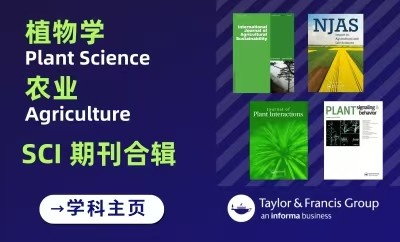












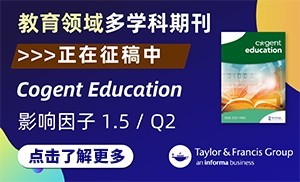
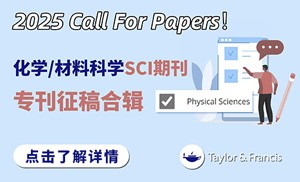





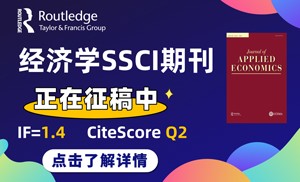




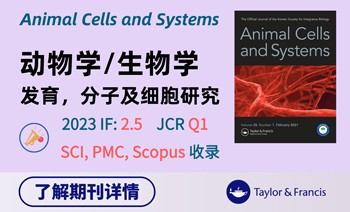


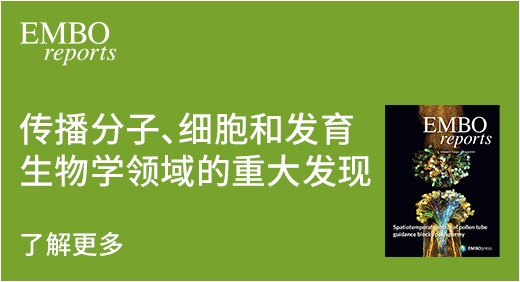
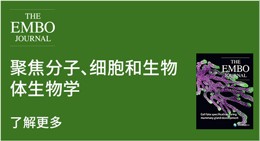
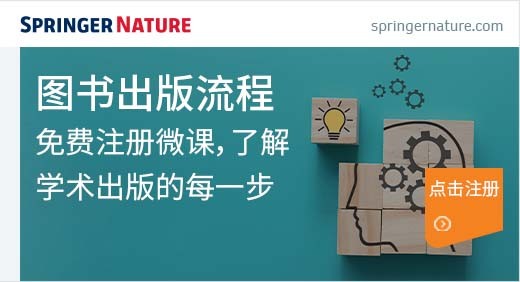




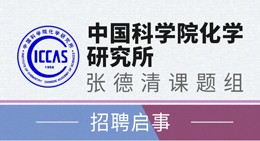
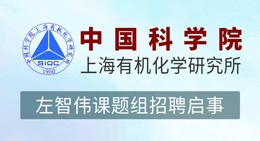

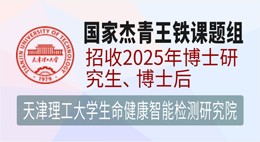



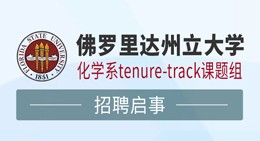
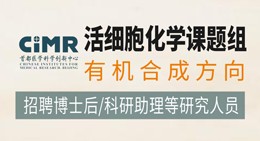




 京公网安备 11010802027423号
京公网安备 11010802027423号